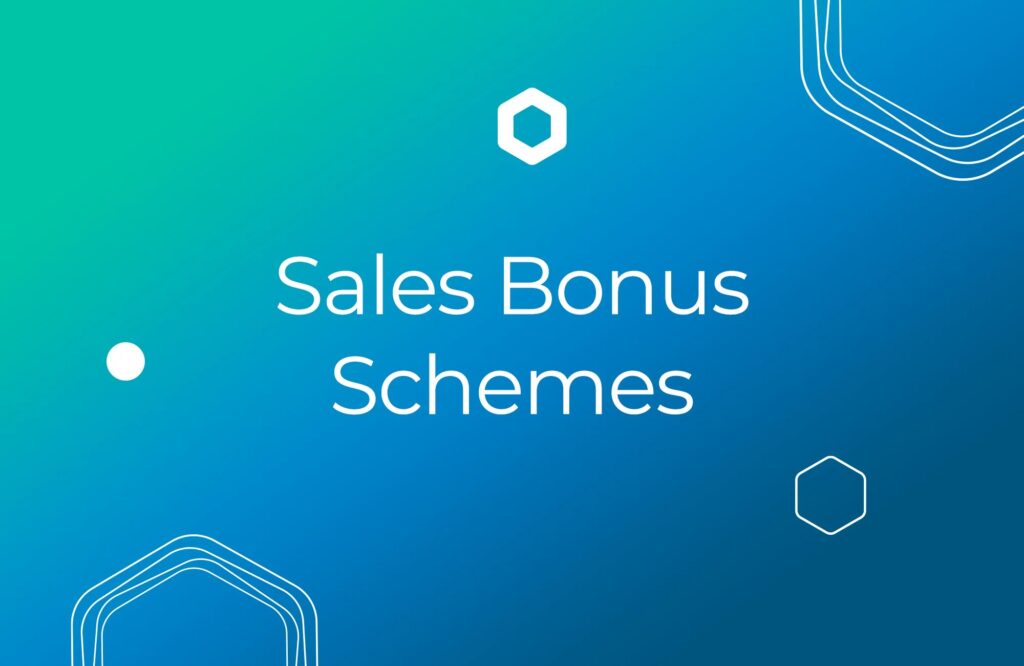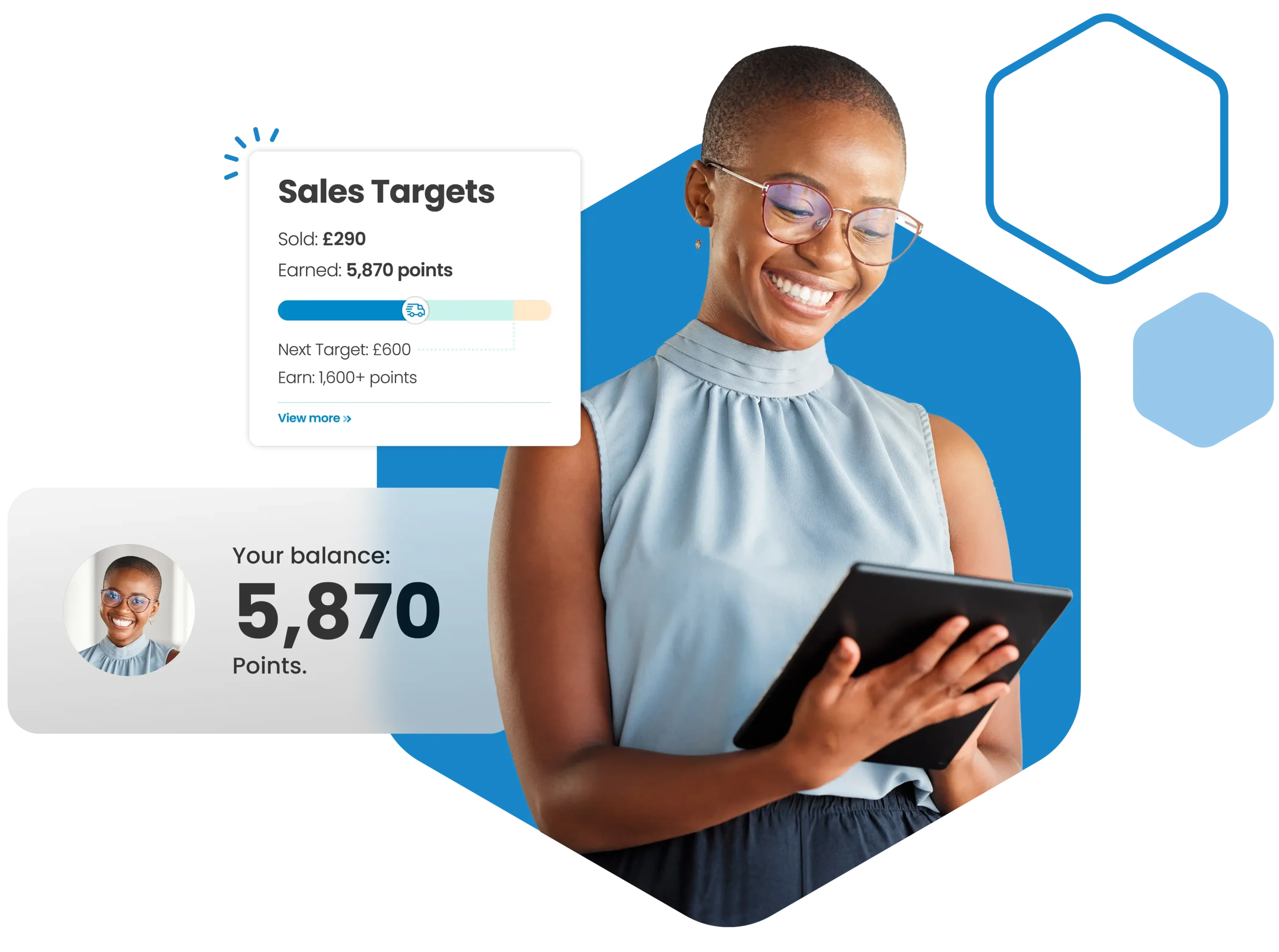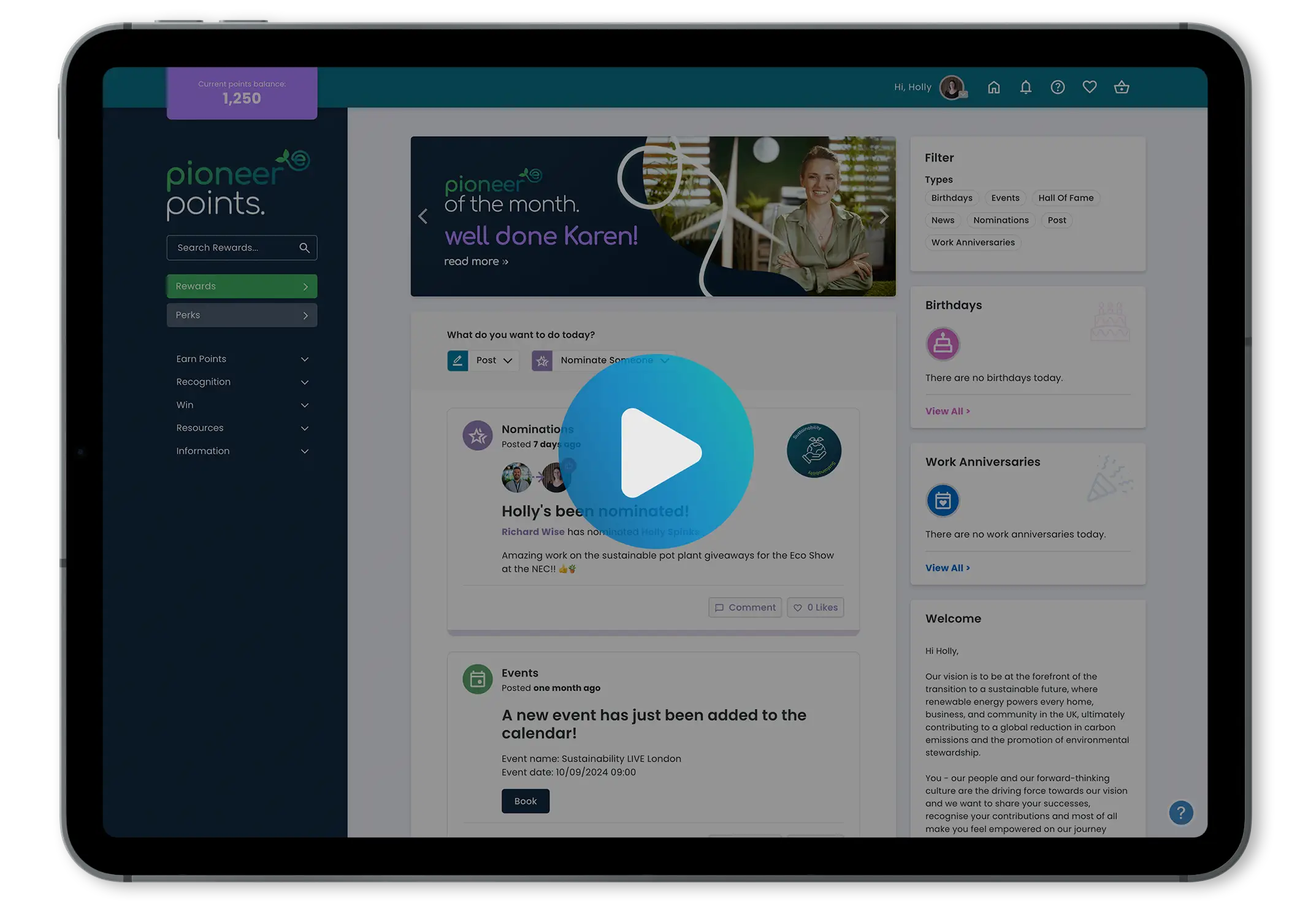


Looking for ways to inspire your sales team to achieve their full potential? Introducing a well-thought-out and purposeful sales bonus scheme can have a transformative impact on how your sales reps engage with their tasks and the goals they’re striving to achieve.
With inflationary pressures and rising expenses straining household budgets in the current economic climate, clear commission structures and bonus schemes are very much welcomed by employees. So, there’s no better time to review your sales compensation efforts.
In this blog, we’ll provide everything you need to know about designing sales bonus schemes and the various commission structures to consider to propel your team towards success.
Skip to:
What is a sales bonus?
A sales bonus acts as both acknowledgement and remuneration for individuals or teams that accomplish set sales targets and performance milestones.
Widely adopted in sales-centric industries like retail, telecommunications, pharmaceuticals, and technology, this strategy reflects the close connection between a company’s financial success and the effectiveness of its sales team.
The criteria for earning sales compensation varies across companies and industries, encompassing factors such as total sales revenue, meeting or surpassing sales quotas, acquiring new customers, selling specific products or services and achieving diverse performance metrics.
There are two primary categories of sales bonuses:
- Performance-based bonuses: These bonuses are contingent on meeting predetermined targets, whether individual or team-oriented. Examples include reaching a specified sales quota, achieving particular profit margin benchmarks, or attaining high customer satisfaction ratings.
- Discretionary bonuses: Awarded at the discretion of managers, these bonuses are not tied to explicit performance criteria. Instead, they serve as recognition for exceptional work that goes above and beyond standard expectations.

Why you need a sales compensation plan
Did you know that over 50% of salespeople would choose to resign from their jobs if a company didn’t offer a competitive compensation package?
It’s so secret that sales is an extremely high-pressure field and employee turnover is very high. To counteract this, businesses must go the extra mile to create an environment that not only attracts but also keeps their best sales talent.
A well-crafted compensation plan (one that goes beyond traditional elements like a higher base salary) is crucial. By offering appealing incentives such as commissions, SPIFFs, bonuses and non-financial rewards, companies can establish a framework that makes an effort to recognise hard work and dedication and give them that extra push to hit targets.

What is the difference between a sales bonus and a sales commission?
A sales bonus is extra money given to salespeople on top of their regular salary for achieving specific goals. Whereas sales commission is a reward based on a predefined percentage of the total sales a person makes.
Bonuses reward the achievement of specific goals like meeting sales targets or improving customer satisfaction. A sales bonus could be distributed as a one-time lump sum or paid in smaller amounts, and they depend on how well an individual or their team performs.
On the other hand, a sales commission is usually based on the value of what they sell and is paid regularly, like every week or month.

Finding the right sales bonus structure to motivate your team
Crafting an effective sales rep commission structure to inspire and energise your team involves several key considerations, including:
- Clarity and measurability of goals: You must ensure that your team understands the specific actions required to earn a bonus. Clearly define goals, whether they relate to achieving sales targets, enhancing customer satisfaction scores, or other measurable metrics.
- Realistic goal setting: Strike a balance between challenge and achievability when setting goals. If objectives are overly difficult, it can lead to demotivation. Aim for targets that push your team to excel without feeling unattainable.
- Transparent communication: Clearly articulate the bonus structure to your team. Provide a comprehensive understanding of how it operates, the criteria for earning bonuses, and the timeline for bonus payouts. Transparency fosters trust and ensures everyone is on the same page.
- Diversify bonus offerings: Keep your team motivated by offering a variety of bonuses – think one-time surprises tied to specific achievements. Don’t forget to mix in goals for both individuals and the team to make the programme more engaging.
- Regular review and adjustment: Regularly review the bonus scheme’s effectiveness and be prepared to make adjustments. This might involve tweaking bonus amounts, revising criteria for earning bonuses or implementing other modifications to keep your team motivated and on board.
How do you structure a sales bonus plan?
Designing a sales bonus plan that strikes the right balance between motivating your sales team and aligning with your business goals demands a thoughtful and strategic approach. We recommend following the 5-steps below:
1. Define objectives: First, clearly express the primary objectives of your bonus plan. Are you looking to increase overall sales revenue, to elevate customer satisfaction, expand market share, or to pursue a combination of these goals? Clearly defining these objectives establishes a solid foundation for the purpose and direction of your bonus plan.
2. Select key metrics: Identify the essential factors that align with your business goals. This could involve securing high initial order values, cross sell drives, improving net promoter score, boosting satisfaction figures or a raft of other pertinent success indicators. When these metrics harmonise with your strategic objectives, bonuses become a potent tool that can significantly contribute to the overall success of the business.
3. Establish bonus criteria: Establish the guidelines for earning bonuses by clearly defining criteria linked to chosen metrics. Determine the bonus amount that individuals or teams will receive upon meeting or exceeding performance targets. Consider implementing a tiered structure where higher levels of achievement correspond to proportionally higher bonuses.
4. Incorporate timeframes for payouts: Ensure transparency in the bonus payout process by clearly defining the timeframes for compensation distribution. Whether you opt for a monthly, quarterly, or annual schedule (we’d recommend a combination of all to maintain momentum year-round), articulating specific timelines enhances predictability and establishes a sense of reliability for team members.
5. Solicit feedback: Actively seek feedback from your sales team regarding the bonus plan. Their suggestions can provide valuable perspectives on the plan’s effectiveness and areas for improvement, as well as fostering a sense of involvement in the bonus structure.

Common sales bonus structure examples
In the realm of sales, bonus structures play a crucial role in motivating and rewarding teams for their diverse achievements. Typically, this all depends on your business type and the goals you wish for your sales team to achieve. Some of the most common bonus scheme examples that can help drive success include:
 Revenue-linked bonus
Revenue-linked bonus
In this setup, sales reps receive bonuses directly linked to the revenue they generate for the company. For instance, securing a £100,000 deal might result in a £1,000 bonus. Alternatively, bonuses could be based on units sold, such as earning a £1,000 bonus for closing 10 deals in a month.
 Customer Lifetime Value (CLV) bonus
Customer Lifetime Value (CLV) bonus
Encourage reps to boost the long-term value of customer relationships through effective up-selling and cross-selling strategies. Create a bonus system tied to customer retention, where, for instance, a £2,000 bonus is offered for customers signing a 3-year contract, with a further escalation to £3,000 for those committing to a 5-year contract. This incentivises sales teams to focus on nurturing enduring customer connections and fostering loyalty through extended commitments.
 Annual excellence recognition bonus
Annual excellence recognition bonus
In celebration of exceptional performance throughout the previous year, this bonus is extended to employees who have surpassed expectations. An example may be the allocation of a special bonus to sales pros who surpass the norm by achieving 110% of their designated sales quota.
 Product-specific achievement bonus
Product-specific achievement bonus
Introduce Special Performance Incentive Funds (SPIFs) to enhance your sales team’s motivation, especially during the launch of a new product. SPIFs operate within clear timeframes and criteria. For instance, sales reps can earn £500 for each sale of the new product or receive a £1,000 gift card for selling 100 units within a specified period, typically lasting for a swift three to six months to drive rapid product sales.
 Cross-selling bonus
Cross-selling bonus
Sales reps are encouraged to identify opportunities where customers may benefit from additional or complementary products that enhance their primary purchase. This requires a deep understanding of the customer’s needs, preferences, and the broader range of products or services offered by the company. Salespeople effectively communicate the benefits of complementary products to customers, demonstrating how these additions meet their needs.
If, over a specific period, the individual successfully cross-sells products/services that contribute an additional say £50,000 in revenue, the Cross-Selling Bonus would be calculated as follows:
- Cross-Selling Bonus = Cross-Sell Revenue × Bonus Percentage
- Cross-Selling Bonus = £50,000 × 0.05
- Cross-Selling Bonus = £2,500
In this scenario, the sales rep would earn a Cross-Selling Bonus of £2,500.
 Up-selling bonus
Up-selling bonus
An upselling bonus is a type of incentive provided to sales representatives for successfully persuading customers to purchase higher-value products or upgrade to premium services. The bonus is typically calculated as a percentage of the additional revenue generated through upselling activities.
This bonus encourages salespeople to focus on maximising the value of transactions by convincing customers to invest in higher-priced offerings, contributing to increased overall revenue for the business.
If, during a specified period for example, the rep successfully persuades customers to purchase higher-value products or upgrade services, contributing an additional £30,000 in revenue, the Up-Selling Bonus would be calculated as follows:
- Up-Selling Bonus = Up-Sell Revenue × Bonus Percentage
- Up-Selling Bonus = £30,000 × 0.08
- Up-Selling Bonus = £2,400
In this scenario, the sales rep would earn an Up-Selling Bonus of £2,400.
How to calculate sales bonuses
To determine a sales bonus, you’ll need to consider the following factors:
- Total sales amount: Calculate the total sales made by the employee over a specific period, such as a month or a quarter. Add up all the sales figures during that time.
- Bonus percentage: Establish the sales bonus percentage, which represents the portion of sales paid out as a bonus. Typically, this percentage is determined based on the employee’s sales performance relative to a set target or goal.
- Bonus amount: Calculate the bonus amount by multiplying the employee’s total sales by the bonus percentage. For instance, if an employee achieved £10,000 in sales, and the sales bonus percentage is 10%, the sales bonus amount would be £1,000.

10 alternative sales bonus ideas
Here are even more highly-effective sales bonus structure examples to show appreciation to your team.
These include offering bonuses for bringing new customers on-board, celebrating milestones, and applauding stellar team performance:
- Referral bonus: With this initiative, sales teams are incentivised to tap into their personal and professional networks, leveraging their connections to bring in new customers. The bonus is a monetary reward for each successfully acquired customer that originated from a referral made by a salesperson.
- Milestone bonus: Incentivise notable achievements within your sales team using celebratory milestone bonuses. This is designed to recognise and reward significant accomplishments, such as exceeding cumulative sales targets, completing specific deals, or consistently maintaining high performance over an extended duration.
- Innovation bonus: Consider adopting a dynamic bonus structure that not only acknowledges but actively champions creative thinking within your sales team. This bonus is crafted to reward those who not only introduce innovative sales strategies but also exhibit the prowess to seamlessly implement them.
- Team performance bonus: This bonus extends its appreciation to the entire sales team for collectively meeting or surpassing their targets. The distribution of the bonus between each team member reflects collective success and shared responsibility of hitting targets.
- Sales contest bonus: Promote a culture of healthy competition within your sales team through sales contests. Create an environment where salespeople can vie against each other to win attractive bonuses as a commendation for their outstanding efforts.
- Customer satisfaction bonus: This bonus is designed to applaud salespeople who consistently achieve high customer satisfaction ratings. This structure promotes a customer-centric mindset, inspiring sales teams to cultivate enduring relationships and consistently surpass customer expectations.
- Special achievement bonus: Reserved for extraordinary feats, this bonus recognises salespeople achieving notable milestones, such as securing complex sales or landing significant new accounts.
- Product-specific bonus: This bonus scheme encourages salespeople to focus on promoting particular items, aligning with company objectives. By selling a certain number of products or services in a set time frame, they’ll receive a financial reward.
- New customer acquisition bonus: This scheme rewards salespeople for acquiring new clients. It may be either a one-time or recurring incentive, with the duration contingent on the value and longevity of the newly acquired customers.
- Consistency bonus: Applauding sustained high performance, this bonus serves as a powerful motivator for salespeople who consistently meet or surpass their targets over an extended period.
Create a winning sales compensation plan today!
A carefully crafted sales compensation plan represents more than just an investment in your sales team – it’s also a pivotal investment in the future success and prosperity of your business.
Yet, no bonus scheme or compensation plan is flawless and challenges may crop up along the way. The key lies in adapting your efforts to align with your company’s goals and the unique attributes of your sales team and product/service.



![How to inspire your sales team (and smash target!) {{ include_custom_fonts({"Poppins":["Semi Bold"]}) }}](https://no-cache.hubspot.com/cta/default/5921162/interactive-187541229676.png)





